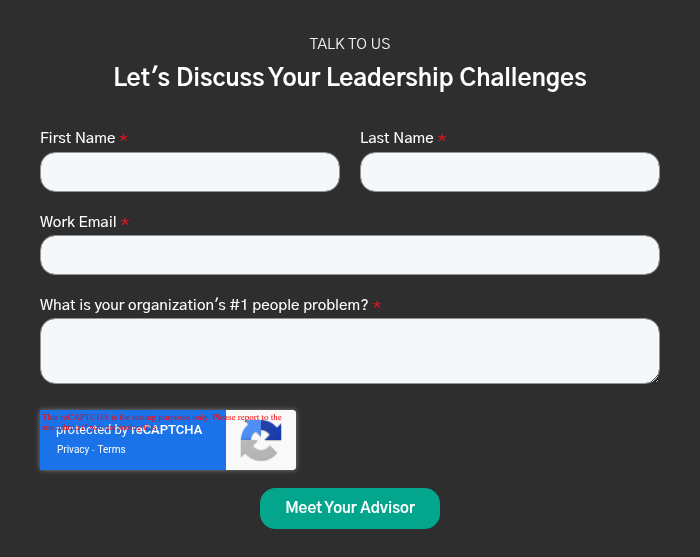Politics in the Workplace: Why Emotional Intelligence Matters More Than Ever
September 17th, 2025
3 min read
By John Gave

Wayne had a reputation. No matter the meeting, no matter the audience, he would steer the conversation toward his political views. His delivery was forceful, his conviction unshakable, and his willingness to debate relentless. What he did not recognize was the cost. Colleagues on both sides of the political aisle began distancing themselves. Over time, Wayne found himself isolated, not because of what he believed, but because of how he expressed it.
As children, many of us were taught the same rule: avoid talking about sex, religion, and politics in social gatherings. In the workplace, this rule becomes even more relevant. Yet, in recent years, politics has become harder to avoid. Protests within companies like Microsoft, Amazon, and Google have made headlines as employees publicly challenge leadership decisions they view as politically charged. Smaller organizations are facing similar divides. Regardless of administration or policy, emotions in the workplace tend to flare when political issues enter the conversation.
The challenge for leaders is clear. Politics will arise, and when it does, it can create division, mistrust, and discomfort across teams. What is required in these moments is not louder debate, but higher levels of emotional intelligence. Emotional intelligence is often defined by self-regulation, self-expression, empathy, and effective communication and offers a path toward preserving workplace harmony. It helps leaders and employees alike manage their reactions, express themselves respectfully, and engage others in ways that minimize conflict rather than inflame it.
In this article, you will learn:
- Why Political Conversations in the Workplace Are Inevitable
- How Emotional Intelligence Shapes Workplace Dynamics
- Practical Steps for Applying Emotional Intelligence to Political Discussions
- The Role of Leadership in Setting the Tone
Why Political Conversations in the Workplace Are Inevitable
Politics has become a constant presence in modern organizational life. Globalization, social media, and rapid communication have blurred the lines between business and politics. Employees expect their organizations to take stances on issues ranging from environmental policy to social justice. As a result, workplace discussions are no longer confined to operational or financial matters.
When these conversations occur, they rarely remain neutral. Politics touches personal values and identity, making disagreements emotionally charged. This is why so many companies, regardless of size, find themselves navigating political discourse. Leaders cannot simply forbid the topic. Instead, they must prepare employees to manage it with maturity.
How Emotional Intelligence Shapes Workplace Dynamics
Emotional intelligence provides the foundation for managing politically sensitive discussions. It begins with self-awareness. Individuals must recognize their triggers and acknowledge the emotions that arise when political topics are introduced. Self-regulation follows, allowing people to manage these reactions and resist impulsive responses.
Next comes self-expression. Expressing a viewpoint with clarity and restraint is different from expressing it with intensity or hostility. Employees who can frame their perspective in a balanced way reduce defensiveness in others. Empathy plays a critical role here. The ability to understand another person’s feelings, even when disagreeing, reduces polarization.
Finally, communication skills tie these elements together. Thoughtful word choice, measured tone, and active listening help transform potentially divisive conversations into respectful exchanges. When these capabilities are present across a workforce, political discussions become less of a threat and more of a test of professional maturity.

Practical Steps for Applying Emotional Intelligence to Political Discussions
There are four practical ways employees and leaders can apply emotional intelligence when politics enters the workplace.
The first is self-reflection. Before engaging in a political conversation, ask: how is this topic affecting me, and why? Understanding one’s own state of mind reduces the risk of reacting emotionally.
The second is measured self-expression. When contributing to a conversation, speak from personal experience rather than issuing sweeping generalizations. Statements framed as “I see it this way” are easier to engage with than declarations framed as “this is the truth.”
The third is empathetic listening. Resist the instinct to prepare a rebuttal. Instead, focus on understanding the other person’s perspective. This does not mean agreement. It means showing respect for their right to hold a different view.
The fourth is constructive communication. Use neutral language, avoid inflammatory terms, and steer the conversation back to shared organizational goals when possible. The objective is not persuasion. It is the preservation of trust and collaboration within the workplace.
The Role of Leadership in Setting the Tone
Leaders carry an outsized responsibility in shaping workplace culture. When political debates arise, their response sets the standard. Leaders who model emotional intelligence by regulating their own reactions, communicating with respect, and listening attentively signal to their teams that emotional maturity is the expectation.
Leadership training programs can play a significant role here. Integrating emotional intelligence training into leadership development not only strengthens individual leaders but also creates ripple effects across entire teams. Executive leadership coaching can reinforce these skills further, helping leaders refine their ability to balance organizational performance with interpersonal dynamics.
The best leaders recognize political discussions cannot always be avoided, but they can be managed. By creating a culture where employees feel heard yet safe from hostility, leaders reduce the risk of division while reinforcing trust.
Takeaways
Political conversations at work are no longer rare disruptions. They are a predictable feature of today’s workplace environment. Left unmanaged, they can harm relationships and erode productivity. Managed with emotional intelligence, they can become opportunities to strengthen respect and professionalism.
Wayne’s story illustrates the risks of unchecked expression. Strong opinions delivered without emotional intelligence alienate others and isolate the speaker. The workplace demands a different approach: one grounded in self-awareness, self-regulation, empathy, and communication. Leaders who cultivate these qualities set the tone for healthier workplace dialogue and stronger organizational culture.
